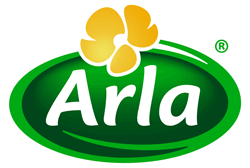Arla Foods announce major organisational changes
- Like
- Digg
- Del
- Tumblr
- VKontakte
- Buffer
- Love This
- Odnoklassniki
- Meneame
- Blogger
- Amazon
- Yahoo Mail
- Gmail
- AOL
- Newsvine
- HackerNews
- Evernote
- MySpace
- Mail.ru
- Viadeo
- Line
- Comments
- Yummly
- SMS
- Viber
- Telegram
- Subscribe
- Skype
- Facebook Messenger
- Kakao
- LiveJournal
- Yammer
- Edgar
- Fintel
- Mix
- Instapaper
- Copy Link
Posted: 15 May 2012 | Arla Foods | No comments yet
Arla must decrease its annual costs by 500 million DKK in order to keep up with international competitors…


Arla is currently producing significant growth in turnover, but it is the management’s assessment that Arla must decrease its annual costs by 500 million DKK in order to keep up with international competitors. Consequently, Arla will be organised in a more efficient way, to ensure a competitive milk price to cooperative owners and to prepare the organisation for further growth.


Consequently, Arla will discontinue approximately 250 administrative positions globally before the end of 2012, and approximately 150 administrative positions will restructured within the organisation. Simultaneously, Arla will reduce its spend on market research and analysis activities as well as procurement costs on packaging and other materials. In total, the changes are expected to reduce Arla’s annual cost by 500 million DKK going forward.
“Our turnover is growing, and that growth will continue. We have a responsibility towards all of our cooperative owners and other dairy farmers, who invest their milk and their money in Arla, to make sure that our turnover grows significantly faster than our cost. Our international competitors are able to turn ideas into action quicker than before and, therefore, Arla needs a more simple and structured way of working,” says Arla’s CEO Peder Tuborgh.
Growth creates synergies
Arla’s ambition is to continuously play a leading role in the current consolidation of the European dairy industry. A leading position requires that Arla is able to attract and retain raw milk in sufficient volumes, and a prerequisite for this is to deliver a competitive milk price to its cooperative owners.
“It’s a long time since Arla has had the opportunity to really exploit the synergies that always arise when two large companies, each with their integrated production and administration, join forces. Even the most recent mergers with the Swedish Milko and the German Hansa have not been large enough to trigger radical efficiency measures throughout the company. Therefore, this project aims to ensure that Arla stays competitive by reducing costs and complexity of our business model – and thereby prepare ourselves for further growth,” says Peder Tuborgh
In addition to the changes announced today concerning Arla’s administrative structure, the management will continue to assess the ongoing opportunities to make Arla’s administration even more efficient as the company continues to grow. The management will also continue to analyse Arla’s global production set-up to identify the potential for similar efficiency measures within the production chain.
Arla will offer support and career counselling to all affected employees, in accordance with local legislation.
“I know that this is really bad news for the colleagues who may lose their jobs, and it is certainly no reflection on their performance. Each activity they have been responsible for makes sense when viewed separately, but we can’t afford everything. Therefore, we must now either discontinue the activities or organise them in a more efficient way,” says Peder Tuborgh.




